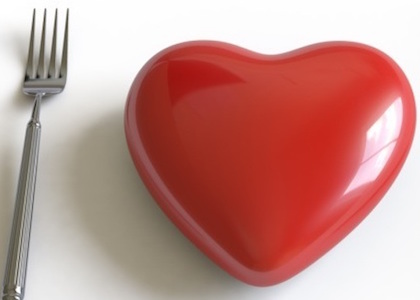
Prevent Hypertension and Maintain a Healthy Heart
By Claire Georgiou, Reboot Naturopath, B.HSc ND
Hypertension or high blood pressure is a chronic medical condition in which the blood pressure in the arteries is elevated. Hypertension is classified as either primary (essential) or secondary. 90-95% of cases are termed primary hypertension, no medical cause can be found while secondary hypertension (5-10% of cases) is caused by other health conditions that affect the kidneys, arteries, heart or endocrine system.
High blood pressure has no symptoms, which is why it is known as a silent killer. The only way to know if you have high blood pressure is to have your blood pressure checked regularly.
Persistent hypertension is a risk factor for strokes, heart attacks, heart failure, congestive heart disease, arterial aneurysm, atherosclerosis, age-related macular degeneration, glaucoma, retinopathy, dementia and is a leading cause of chronic kidney failure. Even moderate elevation of blood pressure leads to a shortened life expectancy. Both dietary and lifestyle changes can improve blood pressure control and decrease the risk of associated health complications.
Increased risk factors associated with primary hypertension are a sedentary lifestyle, stress, obesity, atherosclerosis due to the hardening and narrowing of the blood vessels, potassium deficiency, chronic dehydration, obesity, diabetes & insulin resistance, hypothyroidism, sodium sensitivity, alcohol intake and vitamin D deficiency. Risk also increases with age, some inherited genetic mutations and having a family history.
Other health factors that may increase your blood pressure are anxiety, excess stress, chronic insomnia and cushings syndrome.
Optimum blood pressure levels are 120 (systolic) / 80 (diastolic) or below, 140/90 is considered borderline and above this is considered hypertension which can be categorised as Grade 1, 2 & 3.
Some important foods to lower blood pressure
All fruits and vegetables contain a complex set of natural compounds that will help reduce the risk of hypertension and the associated risk factors while improving over-all health. Here are a few fruits, vegetables and other important foods that deserve a special mention.
Bananas: May lower blood pressure in hypertension patients, primarily due to their high potassium content and also by inhibiting the angiotension converting enzyme (ACE).
Coconut water : Due to its high electrolyte content, coconut water could prevent and reverse high blood pressure induced by a high fructose diet.
Blueberries: Long-term feeding of blueberry enriched diet lowered blood pressure in an animal study and reduced the potential to cause hypertension induced renal damage.
Cranberries: May lower blood pressure in hypertension patients.
Pomegranates: May lower blood pressure in hypertension patients by inhibiting angiotensin converting enzyme (ACE).
Watermelon: May lower blood pressure in hypertension patients due to its potassium, cucurbocitrin and citrulline content.
Culinary herbs: Chilli, cinnamon, dill, parsley, ginger, rosemary, saffron and celery seeds may reduce blood pressure.
Dark Green Leafy vegetables: Potassium rich foods counteract the negative effects of too much sodium in the diet. Magnesium will encourage the relaxation of skeletal and cardiac muscle and relaxation of the blood vessel walls.
Beetroot/Beet (juice): May lower blood pressure in hypertension patients. Certain vegetables possess high nitrate content and this study hypothesized that this might represent a source of vasoprotective nitric oxide. In healthy volunteers, approximately 3hrs following ingestion of a dietary nitrate load (beetroot/beet juice 500ml) their blood pressure was substantially reduced.
Celery Juice: Celery has antihypertensive properties due to 3-n-butyl phthalide, apigenin and other substances that act like ACE or calcium-channel blockers. Four stalks per day or the equivalent in celery juice, oil or celery seed extract reduces blood pressure in animals and humans.
Onions & Garlic: They have shown distinct anti-hypertensive effects.
Tea particularly green tea : May lower blood pressure due to the polyphenols.
Dark Chocolate: May lower elevated blood pressure in hypertension patients due to the polyphenols. Chocolate consumption may exert a protective effect on the cardiovascular system.
Good Fats: Oily fish due to their EPA and DHA content may increase the body’s production of prostaglandin E1 which may help to lower blood pressure by promoting vasodilation. Other good fats are also very important for the management of HBP.
Here are a few Reboot juices for healthy blood pressure
Spinach Fennel Cucumber Juice
V28 Juice
Pomegranate Blueberry Chard
Green Elixir
Summer inspired sports drink
Tabbouleh Juice
Reboot Rainbow Salad juice
Pomegranate Watermelon Juice
Vegetable Broths
Thai infused vegetable broths
Vegetable Pulp Broth